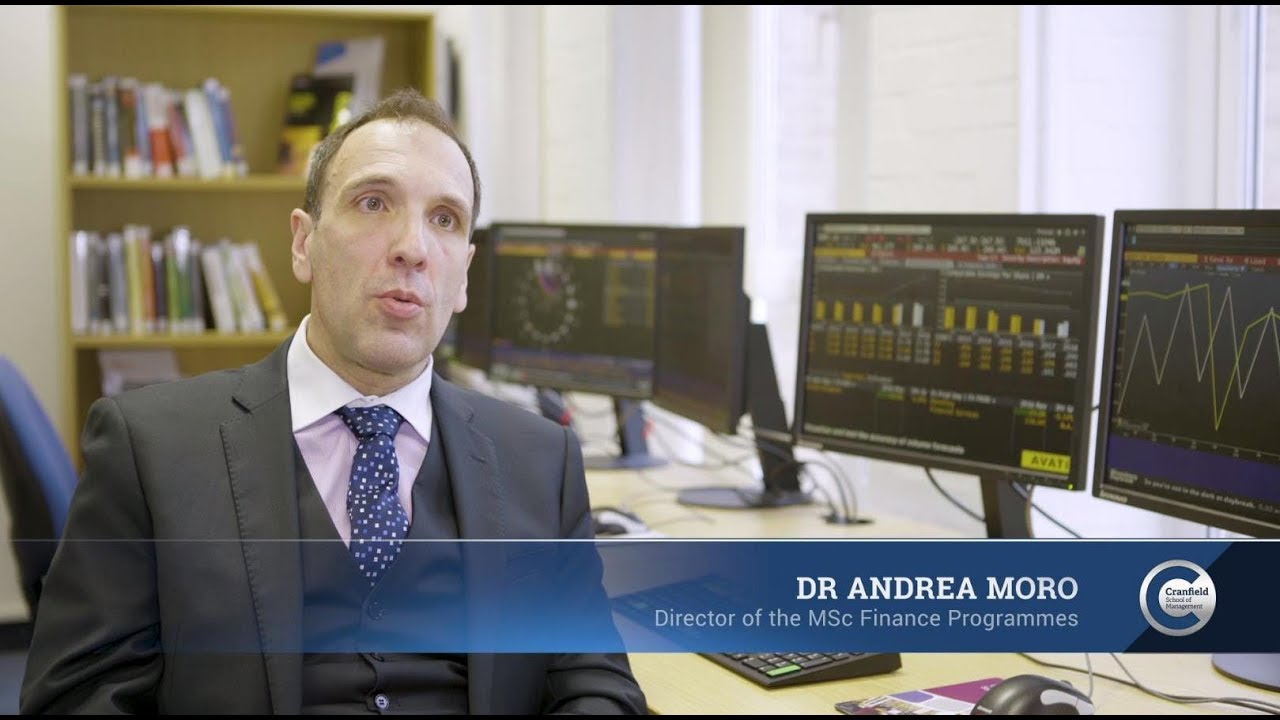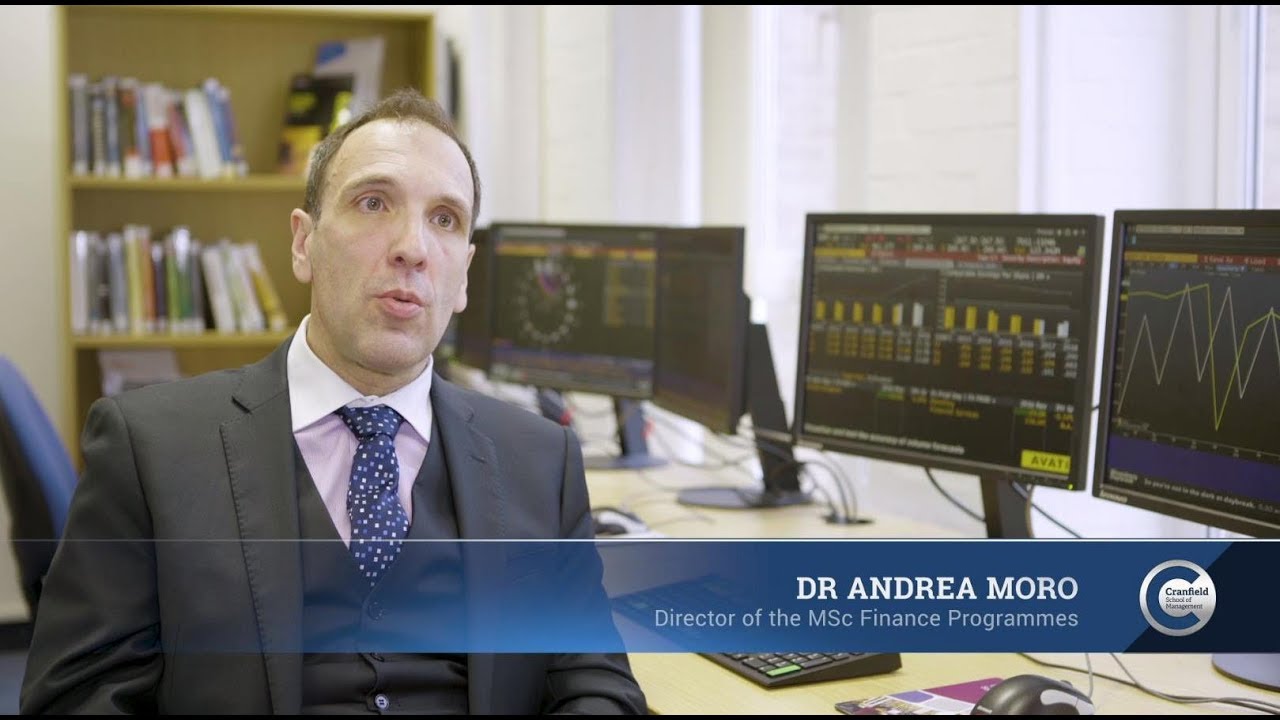The Fintech Tightrope: Opportunities and Dangers
This interview is part of prepaid cards for business provider Soldo’s Digital Disruptors series, which highlights the individuals changing the world with technology.
Interview with Dr Andrea Moro
Dr Andrea Moro is the MSc Finance Programmes Director and Reader in Finance at Cranfield School of Management; but prior to joining academia spent 15 years advising firms in his native Italy. He currently teaches Finance to Cranfield’s MBA students, serves as a non-executive member of the board of directors of two real estate development firms and advises a leading Italian insurance company on CSR and Corporate social responsibility reporting.
What gets you most excited in fintech today?
My hope is that fintech will democratise finance. One of the key themes related to fintech is disintermediation – the fact that firms can directly approach fund providers, be they future buyers, equity investors, etc. This will help firms to reduce their costs. Typically, firms incur costs when they want to raise money because they must go through intermediaries; in a disintermediated world, they won’t have to.
But it will also allow investors to have a more direct say in how firms are managed. Instead of delegating the steering of invested businesses as happens currently with funds, new financial admin tools will allow firms and even individual investors to influence the way in which a business is run. So, taking a positive position on fintech, my general expectation is for disintermediation and an implicit democratisation of the financial world.
Clearly that’s positive. But take blockchain: a great example of disintermediation which can work well, yet cryptocurrencies are what happens when you get disintermediation without regulation: there’s nobody to complain to when things go wrong. So disintermediation can be negative too?
Spot on. Blockchain will be positive and negative. A positive use: blockchain as a tool to keep investors informed. In perhaps five years’ time, firms will be able to put all their transactions and typical bookkeeping on the blockchain. Compliance auditing will be directly reported off the blockchain, and investors will be able to look for themselves at each transaction and make a personal analysis of its performance. The auditing profession could be redundant, but at the same time it will open up new analytical professions, collating performance data from a broader range of corporate areas to create new analyses of company health and value.
A more negative deployment: the tokenisation of initial coin offerings (ICOs); where particularly fintech firms raise money by issuing tokens that customers can then use to buy products or services from the firm later on. This is potentially an excellent way to raise funds, but because it is unregulated, its reputation has been compromised by fraudsters who have run away with the money. Hence, today, even really good firms are struggling to use ICOs to raise money. It’s a pity, because ICOs could democratise the market. They could create an adult relationship between the firm and the investor, where the investor has direct contact with the top management of the business.
So this is the problem: much of the fintech space is an unregulated world. And I’m not against deregulation – I think that regulation destroys trust. In unregulated environments, we focus on trust in our relationships; with a regulator to fall back on, we behave accordingly and converge around the regulatory minimum. This is why I don’t like too much regulation.
But at the same time, a total lack of regulation means that the single investor must be incredibly mature and capable of spotting whether a potential investment is a good one or not.
I think that regulation destroys trust. In unregulated environments, we focus on trust in our relationships; with a regulator to fall back on, we behave accordingly and converge around the regulatory minimum. This is why I don’t like too much regulation.
Data management is another incredibly interesting area with the potential for both good and bad outcomes. We are all used to firms – Experian, Equifax etc. – which assess consumer creditworthiness. A key development in fintech is advanced versions of these firms which assess consumers and businesses across countless axes by using far more sources of data. Not just their historical financial data, but where the customer lives, where they shop, what they buy, where they went to school etc. All this information tells you a lot about a consumer’s habits, but also their social status; their capability to deal with their finances.
This can be positive; for example, better customer insight means there is a greater chance of the right customer being offered the right product – or being approved for a product in the first place when previously they would have been rejected. But there are also negative connotations: individual targeting of offers and advertisements based on incredible data insight; or even the opposite – a barren product landscape for people who have been socially classed into low-value categories.
In the world of big data, there is a clear lack of proper regulation. And the problem is, any regulation in this area must be developed globally to be effective, because otherwise I can protect my data in the UK, yet still be targeted by someone in the US or Russia.
It’s just too tempting for companies to use these incredible new pools of data at their disposal: if you think of the information available just on Facebook, Twitter and LinkedIn, businesses can start to create intensely personalised and targeted marketing, or even transcend advertising to offer something that looks more like a tailored consulting activity.
Regulators are certainly behind the times sometimes – and today they’re encouraged to operate on a particularly light-touch basis. If that’s the bad news, where’s the biggest opportunity for businesses?
I would say the greatest advantage for firms exploiting fintech is in accessing more financial services at lower cost. Even the more traditional financial products, like a loan from a bank, are reducing in cost because of competition in the fintech market. For example, I occasionally transfer money between the UK and Italy. Five years ago, I would do this via my bank account at HSBC, but I was asked to pay fees and the exchange rate was ridiculous.
Then a new player, Transferwise, entered the market. It was nothing new – Transferwise just digitised something that has been happening for more than five centuries! But they were disruptive because they dramatically cut fees and they were able to offer exchange rates very close to the corporate market rate. The banks were forced to revise their exchange rate policies, and so the fees went down. This is happening across the board: loans, credit cards, investments etc.
The other key advantage for businesses beyond price is experience – particularly the ability to sorting out irritating day-to-day challenges that invariably have a knock-on effect. Take, for example, the need to borrow £5,000 to pay an invoice, without which I will be penalised by my suppliers. Previously, even if I had a great relationship with my bank, it could take two weeks to get the appointment and do the paperwork; by which time the whole issue would already be a crisis.
Today, fintech gives businesses many more options to cut timelines and access turnkey solutions because all the complexity (identity, credit checking etc.) is taken care of. Sometimes the difference in interest rates – half a percent between best and worst performing options – is immaterial; you can’t wait two weeks to get a decision from the bank and you just need a workable business solution.
Cutting forms and complexity and putting digital to work makes it easier to run a business. Sometimes it saves time – probably the most relevant and scarce resource we have. On other occasions, it’s a more binary benefit: business decisions that were previously impossible become possible.
Either way, in a world that evolves so rapidly, it’s difficult to plan our financial needs in advance. Having the ability to deal with most of our financial requirements easily and fast in real-time allows us to cut costs but also run a more responsive and agile business.
—
We’ve been here before! Fintech is showing the same characteristics for financial services as we’ve seen many times before in previous evolutions of the web. Take marketplaces like eBay and Craigslist. On the one hand, the cost of making a transaction reduces dramatically. On the other, disintermediation – cutting out the middle man – also means that customers take a certain amount of risk. The marketplaces worked to self-regulate and build trust, with varying degrees of success: eBay for example, bought PayPal, partly to add credibility and trust. Craigslist has been less successful in developing a trusted reputation. Either way, the cost imperative means that digital transformation of financial services is the norm. Expect faster transactions, more functionality and legacy banks to start taking pride in their size and solidity while newcomers promote agility and innovation.








